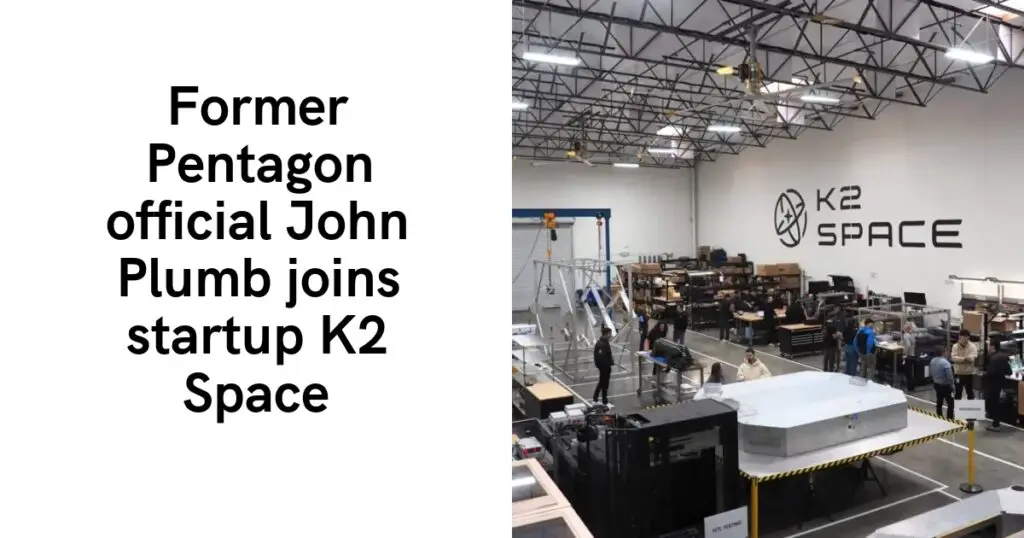WASHINGTON — John Plumb, who served as the first assistant secretary of defense for space policy from 2022 to 2024, has joined K2 Space, a California-based satellite manufacturing startup, as its head of strategy.
Plumb’s appointment, announced Jan. 15, comes as K2 Space aims to carve out a niche in the defense satellite market, where established manufacturers have traditionally dominated large spacecraft production for military and intelligence customers.
The company is focused on producing large satellite platforms, or spacecraft buses, attempting to disrupt the market by offering these satellite platforms at price points typically seen for smaller systems.
K2 Space last year secured a U.S. Space Force contract to demonstrate its capabilities in medium Earth orbit (MEO), a high-radiation environment that requires greater resilience than the more crowded and lower-cost low Earth orbit (LEO). If successful, this initiative could position K2 Space as a competitive player in national security and commercial satellite markets.
The company’s first defense mission, called Gravitas, is projected to launch in early 2026, carrying multiple national security payloads.
“We are thrilled John is joining us at K2 Space,” said CEO Karan Kunjur in a statement.
During his tenure at the Pentagon, Plumb spearheaded the Department of Defense’s first Commercial Space Integration Strategy, which aimed to elevate commercial solutions from supplementary to integral components of national security space architecture.
“K2 Space is building something new: large, high-power, resilient satellite buses built to withstand the harshest radiation environments in orbit — and doing so at price points associated with much smaller and less capable satellites,” Plumb said in a statement.
Plumb’s work at the Pentagon included initiatives to reduce classification barriers and integrate commercial technology into military exercises and simulations.
The former defense official’s move to K2 Space comes as the defense establishment is seeking out commercial partners to fill capability gaps and accelerate innovation at lower costs.


